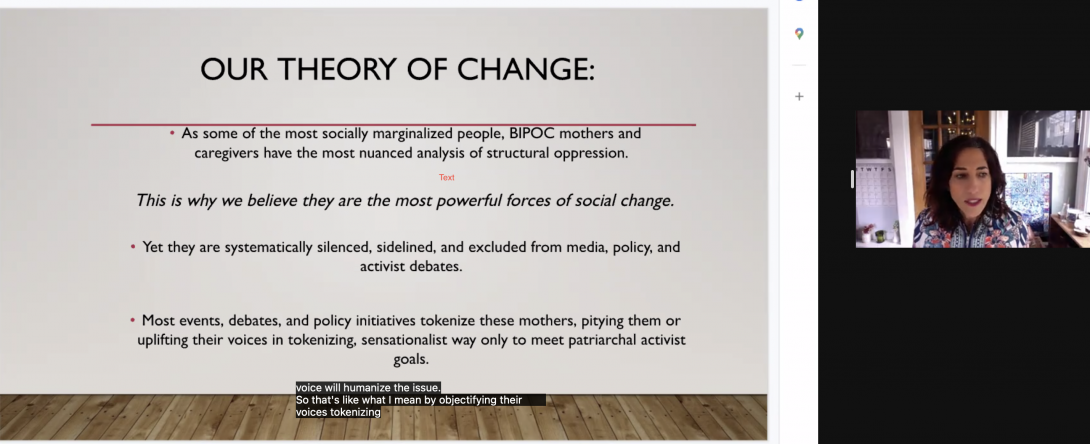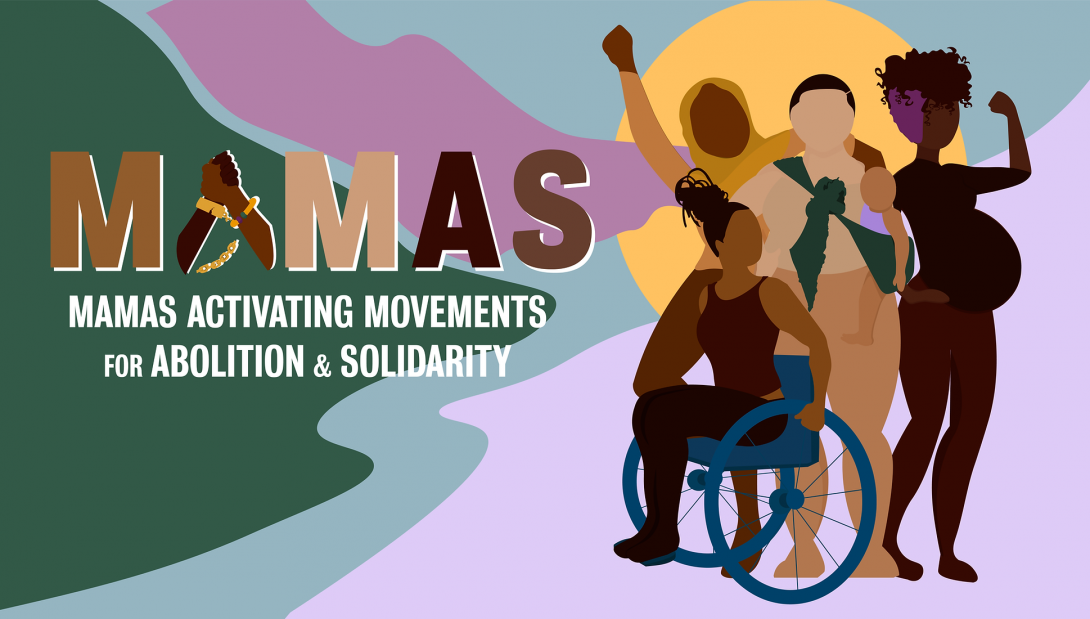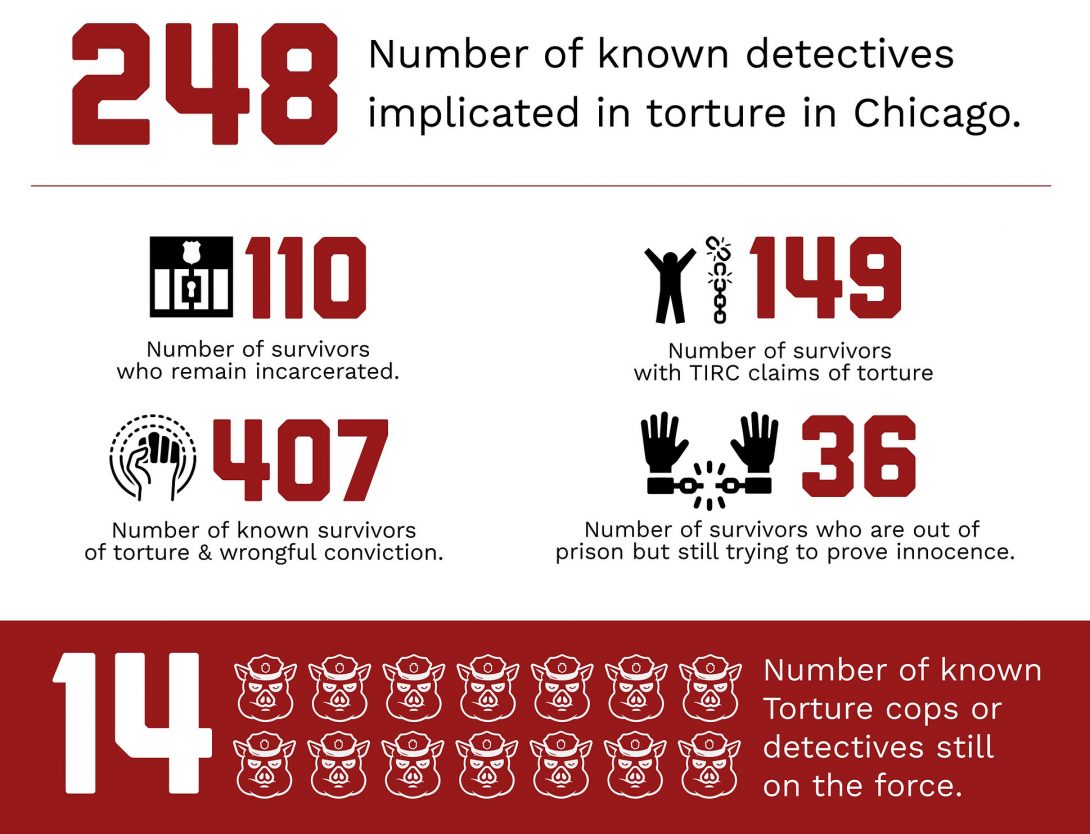Activist Mothering – Ending Police Violence through a Reproductive Justice Lens: A Civic Engagement Lunch Talk Follow-Up
On March 2nd, 2022, Professor in Gender and Women's Studies and Global Asian Studies Nadine Naber presented at IPCE's virtual Civic Engagement Lunch Talk series. Her presentation was titled "Activist Mothering: Ending Police Violence through a Reproductive Justice Lens". She was joined by Esther Hernandez, Member of Mothers of the Kidnapped and Innocent Demand Justice & Mother of Juan and Rosendo Hernandez.
In her talk, Professor Naber expounded on what it means to bring a reproductive justice framework to the struggle to end police torture and frame-ups. Specifically, it focused on the implications of involving mothers and caretakers of police torture survivors in advocacy for justice and abolition. The presentation was based upon a policy process conducted with mothers and caretakers of police torture survivors. The process involved developing mechanisms for increasing the advocacy of mothers and caretakers living on the outside of prison walls into Chicago-based social movements around prison injustices on the inside. Specifically, these mechanisms have opened up new possibilities for supporting the integration of mothers and caretakers into policy processes with the offices of the State's Attorney, the Governor and the United Nations Special Rapporteur on Racial Discrimination.
Professor Naber's research was done in collaboration with Mamas Activating Movements for Abolition & Solidarity (MAMAS), which amplifies the voices of mother-survivors of state violence.
Watch Professor Naber's full presentation
MAMAS' Theory of Change Heading link

MAMAS’ Theory of Change:
As some of the most socially marginalized people, BIPOC mothers and caregivers have the most nuanced analysis of structural oppression.
This is why we believe they are the most powerful forces of social change.
Yet they are systematically silenced, sidelined, and excluded from media, policy, and activist debates.
Most events, debates, and policy initiatives tokenize these mothers, pitying them or uplifting their voices in tokenizing, sensationalist way only to meet patriarchal activist goals.
Mamas Activating Movements for Abolition & Solidarity (MAMAS) Heading link

Mamas Activating Movements for Abolition & Solidarity (MAMAS) amplifies the voices of mother-survivors of state violence.
MAMAS is a collective of people conducting the labor of mothering among Black, indigenous, and people of color-based communities. By “mamas,” we mean biological and non-biological mothers and caretakers. We believe Black and Brown mamas laboring on the frontlines of families and communities targeted by state violence are among the most powerful forces of revolutionary change.
Our vision is to integrate the voices and strategies of mamas into social movements, media debates, and policy processes about the systems sustaining U.S. empire and white-supremacy—from policing and immigration to colonization and war. We believe this integration is necessary if we are to survive these systems and build the kinds of connections and alternatives needed to build a just and loving society.
Click here MAMAS’ video gallery and website.
Click here for MAMAS’ Instagram.
Chicago Alliance Against Racist and Political Repression Heading link

Chicago Alliance Against Racist and Political Repression (CAARPR)
Since 1973, when it was born from the movement to free Angela Davis and all political prisoners, the Chicago Alliance Against Racist and Political Repression has defended the rights of oppressed people in Illinois and around the world.
We defend the civil liberties of workers, activists, and prisoners. We struggle against white supremacy, the prison-industrial complex, and state violence. We demand community control of the police and full representation for Black people and other poor and oppressed people at all levels of government.
Click here to learn more.